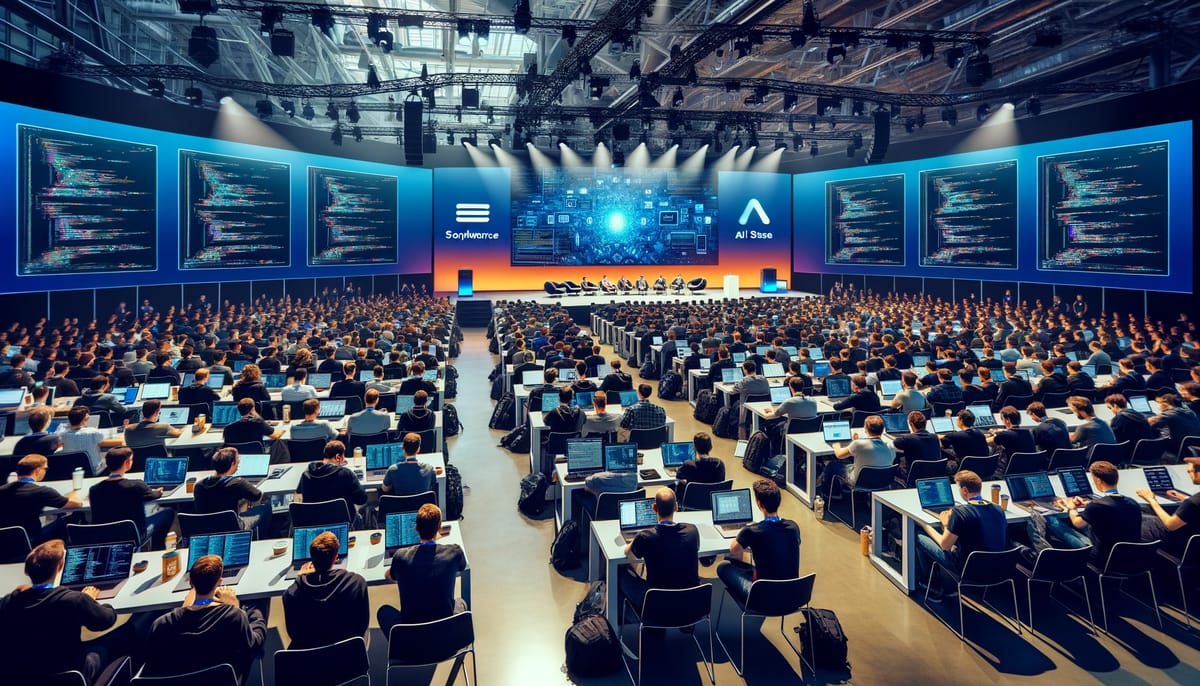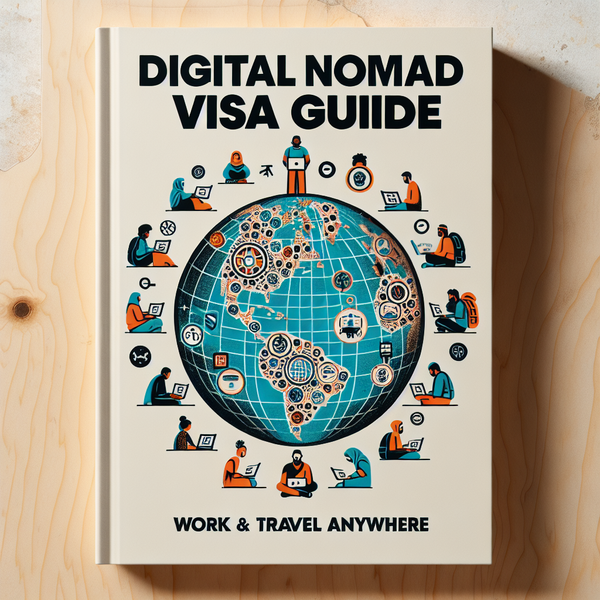WeAreDevelopers World Congress 2025: A Digital Nomad's AI Reality Check

The TLDR: 8.5/10 - Worth Every Euro
After spending Thursday and Friday at the WeAreDevelopers World Congress in Berlin's CityCube, I can confidently say this was one of the most valuable investments in my professional development this year. As someone building location-independent income streams, the insights into practical AI implementation were exactly what I needed.
My quick scorecard:
- 🎯 Relevance to remote work: 9/10
- 📊 Organization quality: 9/10
- 🤝 Networking opportunities: 8/10
- 💡 Actionable insights: 9/10
- 💰 Value for money: 8/10
Why This Conference Matters for Digital Nomads
Let me be honest - I initially questioned whether a developer conference would be relevant for someone focused on digital wealth creation and location independence. I was wrong.
The AI Reality Check I Needed
Over two days, I attended sessions that fundamentally shifted how I think about AI integration in business. We're not talking about replacing humans or dystopian scenarios. Instead, I witnessed practical, everyday AI solutions that are already transforming how remote teams operate.
Key insight: The companies thriving in the remote-first economy aren't just using AI tools - they're building AI-enhanced workflows that multiply productivity while maintaining human creativity.
What 15,000+ Developers Are Actually Building
The conference brought together 15,000 developers, 8,000 companies, and 1,600 decision-makers. The diversity was staggering - from Fortune 500 CTOs to solo developers building SaaS products from Bali.
Notable speakers included:
- Werner Vogels (VP & CTO, Amazon.com) - on cloud-native AI architectures
- Thomas Dohmke (CEO, GitHub) - on the future of collaborative coding
- Prashanth Chandrasekar (CEO, Stack Overflow) - addressing the knowledge sharing revolution
- Ankit Patel (NVIDIA) - exploring AI scaling laws and reasoning models
But beyond the big names, the real value came from conversations with practitioners implementing AI in their daily workflows.
My Day-by-Day Experience
🗓️ Thursday: The Overwhelm and the Breakthrough
Morning sessions covered everything from cloud architecture to cybersecurity. The organization was exceptional - minimal wait times, clear signage, and a mobile app that actually worked.
The breakthrough moment came during an AI implementation workshop. I watched a small development team demonstrate how they'd integrated AI assistants into their code review process, reducing turnaround time by 60% while improving code quality.
Personal reflection: This wasn't theoretical. These were real productivity gains that directly translate to higher hourly rates for remote developers.
🗓️ Friday: Connecting Theory to Practice
The most valuable session for me was a panel on "AI-Enhanced Remote Collaboration." Three remote-first companies shared their tech stacks and processes.
One standout conversation happened at a sponsor booth where I met a solo developer who'd built a micro-SaaS using AI for content creation. His MRR had grown from €0 to €12k in eight months - exactly the kind of location-independent income I focus on.
The AI Insights That Changed My Perspective
💡 1. AI as a Multiplier, Not a Replacement
Every successful implementation I saw treated AI as a force multiplier for human creativity, not a replacement. The teams generating the highest value were those combining AI efficiency with human strategic thinking.
🔧 2. The Democratization of Complex Tech
Tools that required entire engineering teams 12 months ago can now be implemented by solo developers in weeks. This is creating unprecedented opportunities for location-independent entrepreneurs.
📈 3. The Compound Effect is Real
Companies that started experimenting with AI 18 months ago now have significant competitive advantages. The gap between early adopters and laggards is widening rapidly.
Networking: Quality Over Quantity
The informal conversations proved most valuable. During coffee breaks and lunch sessions, I connected with:
- A remote team lead from Amsterdam sharing productivity metrics
- A digital nomad building developer tools from Portugal
- A startup founder who'd automated 70% of their customer support
Several conversations stood out:
The conference actually triggered my decision to try Claude Code - which led directly to the AI-enhanced blog automation system I'm now using for pompilu.com. Seeing practical AI implementations in action made the possibilities tangible.
A Sentry representative introduced me to their error monitoring platform - something I'd never heard of but could be highly relevant for our production systems. Those unexpected discoveries are what make conferences worthwhile.
I also spotted someone using Ghostty terminal and immediately switched - sometimes the smallest improvements come from over-the-shoulder observations.
What I'm Implementing Immediately
🚀 1. AI-Enhanced Content Workflow
Inspired by several sessions, I'm restructuring my content creation process to leverage AI for research and first drafts while focusing human effort on strategic messaging and optimization. The Claude Code integration I implemented post-conference is already proving this approach.
🔗 2. MCP Integration Exploration
The Model Context Protocol (MCP) discussions were fascinating - seeing how easily AI agents can be connected and composed. Multiple Docker Compose workshops covered agent orchestration, opening up entirely new automation possibilities.
🛡️ 3. Production Monitoring with Sentry
The Sentry conversation revealed gaps in our error monitoring approach. For anyone running production systems, robust error tracking isn't optional - it's foundational.
🏢 4. Rethinking Team Structure
The Intercom presentation challenged traditional Product Trio models. Their shift to dynamic workstreams where people regroup based on objectives rather than fixed roles was eye-opening. Much less overhead, more adaptability.
The Honest Downsides
📊 Information Overload
With 20+ stages and 185+ speakers, choice paralysis was real. I recommend arriving with a clear learning agenda.
📢 Surface-Level Sessions
Some presentations felt like sales pitches rather than deep technical insights. The workshop format provided more actionable value.
🎯 Limited Non-Developer Content
While AI applications were broadly relevant, the conference assumes significant technical background. Non-technical attendees might struggle with some sessions.
Financial Reality Check
Total investment: ~€800 (ticket + travel + accommodation)
Estimated ROI: Conservative 5x within 12 months through:
- Productivity improvements from AI workflow integration
- New service offerings based on insights gained
- Strategic connections for future collaborations
Would I Return in 2026?
Absolutely. The conference provided the perfect balance of tactical AI implementations and strategic thinking about the future of remote work.
For fellow digital nomads: This isn't just a developer conference - it's a window into the tools and trends shaping location-independent income opportunities.
For traditional remote workers: Understanding these AI trends isn't optional anymore. The productivity advantages are too significant to ignore.
Key Takeaways for Building Digital Wealth
- AI adoption is accelerating faster than most anticipate - early movers have significant advantages
- Remote-first companies are leading AI innovation - location independence and AI adoption strongly correlate
- The barrier to entry for AI-enhanced services is dropping rapidly - opportunities for solo entrepreneurs are expanding
- Quality still matters more than automation - AI multiplies good strategy but can't fix bad fundamentals
- Traditional team structures are evolving - dynamic workstreams and AI-enhanced collaboration are replacing rigid hierarchies
Tools and technologies on my radar: Databricks for data processing, MLflow for ML lifecycle management, Keycloak for identity management, and Docker Compose for agent orchestration. The practical applications I saw have me rethinking our entire approach to AI integration in business.
The WeAreDevelopers World Congress reinforced my belief that we're in the early stages of a massive shift in how knowledge work gets done. For those building location-independent income streams, understanding and leveraging these changes isn't optional - it's essential.
Planning your own conference strategy? Subscribe to the pompilu.com newsletter for more insights on building wealth through strategic learning and AI-enhanced productivity.



